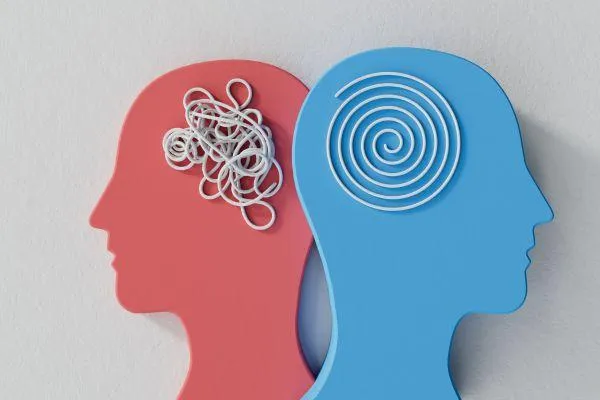Blog
Blog

Breaking the Stigma: Why Mental Health Matters to Everyone
Mental health is an essential part of our overall well-being, yet it often remains a topic shrouded in stigma and misunderstanding. Despite growing awareness, many people are still hesitating to talk about their mental health struggles, fearing judgment or rejection. This reluctance can prevent individuals from seeking help. It's time to break the stigma and recognize that mental health matters for everyone.
Understanding Mental Health
Mental health isn't just about the absence of mental illness. It covers our emotional, psychological, and also our social well-being. It affects how we think, feel, and act, influencing our ability to handle stress, relate to others, and make decisions. Just as physical health is crucial for a fulfilling life, mental health is equally as important.
However, society often treats mental health differently. While we freely discuss physical ailments, mental health issues are frequently met with silence or discomfort. People can feel awkward discussing it, and it's often treated as a taboo subject. Historically, mental illness has been seen as a sign of weakness or something to be ashamed of. Times are changing, but more needs to be done to undo this mindset.
The Consequences of Stigma
Stigma surrounding mental health can have serious consequences. It discourages people from seeking the help they need, leading to untreated conditions that can worsen over time. In some cases, it can even be life-threatening. At the time of writing this, according to the World Health Organization, depression is a leading cause of disability worldwide, and suicide is the second leading cause of death among 15-29-year-olds.
When people feel isolated or judged because of their mental health, they are less likely to open up or access resources that could help them. This isolation can exacerbate feelings of loneliness and despair, creating a vicious cycle that is difficult to break.
Why Mental Health Matters for Everyone
Mental health affects everyone, not just those who have been diagnosed with a mental illness. We all experience stress, sadness, anxiety, and other emotional challenges at different points in our lives. By acknowledging that mental health is something that affects everybody, we can create a more supportive environment where people feel safe to discuss their experiences.
Good mental health is essential for leading a balanced and fulfilling life. It enables us to cope with change, build strong relationships, and both set and achieve our goals. When we prioritize our mental health, we improve not only our own lives but also the lives of those around us.
Breaking the Stigma: What Can We Do?
To break the stigma surrounding mental health, we need to start by changing the way we talk about it. Here are some steps we can all take:
1. Educate Ourselves and Others
Understanding mental health is the first step in breaking down stigma.
Learn About Mental Health Conditions: Start by familiarizing yourself with common mental health disorders such as depression, anxiety, bipolar disorder, schizophrenia, and PTSD. Understand their symptoms, causes, and the challenges individuals face.
Recognize the Importance of Seeking Help: Many people avoid seeking help due to fear of judgment or misunderstanding. By educating yourself on the benefits of therapy, medication, and other treatment options, you can encourage others to seek the help they need. Highlight the fact that seeking help is a proactive and courageous step toward well-being, not a sign of weakness.
Share Knowledge: Use your understanding to inform others. This could be through casual conversations, social media, or community involvement. When someone shares misconceptions, gently correct them with accurate information. For instance, if someone says, "People with depression just need to snap out of it," you could explain that depression is a complex condition that often requires professional treatment.
2. Speak Openly
Open dialogue is one of the keys to normalizing mental health discussions.
Share Your Own Experiences: If you feel comfortable, talk about your own mental health journey. Whether you've faced anxiety, stress, or any other challenge, sharing your story can make a powerful impact. It helps others feel less alone and more likely to open up about their own struggles.
Encourage Dialogue: Create a safe space for others to talk about their mental health. You can do this by being a good listener, showing empathy, and avoiding judgment. Ask open-ended questions like, "How have you been feeling lately?" or "Is there anything on your mind that you'd like to talk about?"
Use Social Media Responsibly: Social media can be a powerful tool for change. Share articles, personal stories, and resources that promote mental health awareness.
3. Challenge Misconceptions
Address Stereotypes: If someone expresses a stereotype or misconception, try to correct it in a respectful way. For example, if someone says, "People with mental illness are dangerous," you could respond with, "Actually, most people with mental health conditions are not violent and are more likely to be victims of violence."
Provide Evidence-Based Information: Share facts and research to back up your points. For example, you might mention that mental health conditions are common and treatable, and that many people lead fulfilling lives with proper care.
Promote Positive Language: Language shapes our perceptions. Encourage the use of respectful and person-first language, such as "person with schizophrenia" instead of "schizophrenic," which emphasizes the individual rather than the condition.
4. Support Those in Need
Supporting someone with mental health struggles can be incredibly meaningful.
Be an Active Listener: Sometimes, people just need someone to listen without judgment or advice. Let them share their feelings and thoughts at their own pace. Show that you’re fully present by maintaining eye contact, nodding, and providing verbal affirmations like, "I understand" or "That sounds really tough."
Offer Practical Help: If someone you know is struggling, offer practical assistance. This could be helping them find a therapist, accompanying them to appointments, or simply checking in regularly to see how they’re doing.
Respect Their Boundaries: While it's important to offer support, it's equally important to respect the person's boundaries. They may not always want to talk, and that's okay. Let them know you’re there when they’re ready.
5. Advocate for Change
Advocacy can help create changes that support mental health on a larger scale.
Support Mental Health Initiatives: Get involved in campaigns and organizations that promote mental health awareness and improve access to care. This could involve donating to mental health charities, volunteering your time, or participating in awareness events like World Mental Health Day.
Push for Education in Schools and Workplaces: Advocate for mental health education in schools, starting from a young age. In the workplace, encourage the implementation of mental health programs, such as stress management workshops.
Engage with Policy Makers: Contact your local representatives to express your support for legislation that improves mental health care access and funding. Whether it’s writing letters, signing petitions, or attending town hall meetings, your voice can make a difference.
Conclusion
Mental health matters for everyone. By breaking the stigma, we can create a world where mental health is discussed as openly as physical health, where seeking help is seen as a sign of strength, and where everyone feels supported in their journey to well-being. Remember, taking care of our mental health is not just a personal responsibility; it’s a collective one. Let’s work together to create a more compassionate and understanding world.
